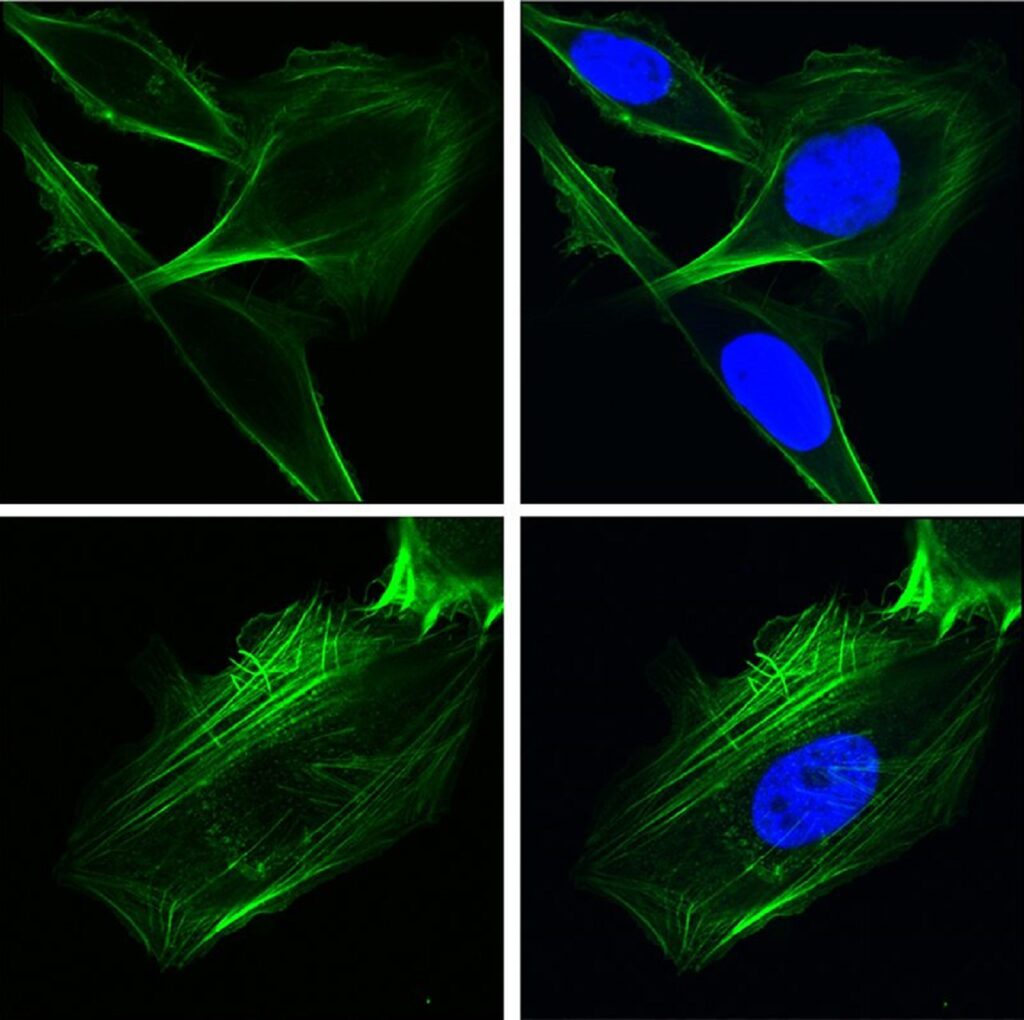In a groundbreaking study, researchers have uncovered a previously unknown mechanism of cancer cell spread that challenges conventional understanding. Metastasis, the process by which cancer cells spread from the primary tumor to other parts of the body, is a critical factor contributing to cancer’s aggressiveness and difficulty in treatment. While this study was focused on understanding the fundamental mechanisms underlying metastasis, the findings could have significant implications for cancer research and treatment strategies.
Researchers at USC University of Southern California made a surprising discovery about how cancer cells spread and resist treatment. They focused on GRP78, which helps regulate other cell proteins. When cells are stressed (due to cancer or COVID-19), GRP78 is “hijacked.” It moves to the cell’s nucleus, changing its behavior and making cancer cells more mobile and invasive.
The researchers finding could lead to new ways to protect cells from this hostile takeover and develop better cancer treatments. The National Institutes of Health supported the research conducted by Professor Amy S. Lee at the Keck School of Medicine of USC.

Lee, the study’s senior author and the Judy and Larry Freeman Chair in Basic Science research at the USC Norris Comprehensive Cancer Center said, “Seeing GRP78 in the nucleus controlling gene expression is a total surprise. When it comes to the basic mechanisms of cancer cells, this is something novel that, to my knowledge, no one has observed before.”
The discovery of GRP78 protein started as an accidental finding during research. Scientists noticed that GRP78 regulates a gene called EGFR, which is associated with cancer. They were intrigued as GRP78 was thought to exist mainly in the cell’s endoplasmic reticulum. They used advanced imaging techniques to confirm their hypothesis and observed GRP78 in the nucleus of lung cancer cells.
Further analysis revealed that when GRP78 enters the nucleus, it stimulates the activity of genes related to cell migration and invasion. GRP78 binds to another protein called ID2, which normally suppresses specific genes. But when bound to GRP78, ID2 loses its ability to suppress genes, causing cancer cells to become more invasive. This discovery could lead to new insights into cancer cell behavior and potentially new therapeutic strategies.
The new findings offer promising approaches for cancer treatment. Researchers suggest down-regulating GPR78 to suppress EGFR in lung cancer or preventing its binding to ID2. Additionally, GRP78 may interact with other critical proteins in the nucleus, opening new avenues in cancer biology research. This discovery has broad implications for cell biology as other proteins might also change their functions under stress or triggers.
Researchers are studying drugs that can inhibit GRP78 expression or activity, with the potential for blocking its activity in the nucleus of cells. This research extends beyond lung cancer, as GRP78 plays similar roles in various cancer types like pancreatic, breast, and colon cancer.
This study presents fundamental changes in the field of cancer research by identifying a previously unknown mechanism of cancer cell spread. The revelation of amoeboid migration as an independent pathway for metastasis challenges existing theories and offers new opportunities for developing targeted therapies against aggressive cancers.
Further investigations into the underlying molecular mechanisms of this process may lead to novel treatments and improved patient outcomes, bringing us closer to effectively managing and treating metastatic cancer.
Journal Reference:
Ze Liu, Guanlin Liu, et al., ER chaperone GRP78/BiP translocates to the nucleus under stress and acts as a transcriptional regulator. Proceedings of the National Academy of Sciences. DOI: 10.1073/pnas.2303448120.
>>> Read full article>>>
Copyright for syndicated content belongs to the linked Source : Tech Explorist – https://www.techexplorist.com/unexpected-mechanism-cancer-cell-spread-discovered/66191/










